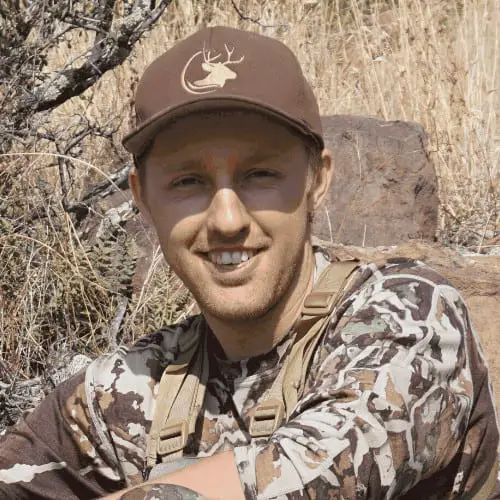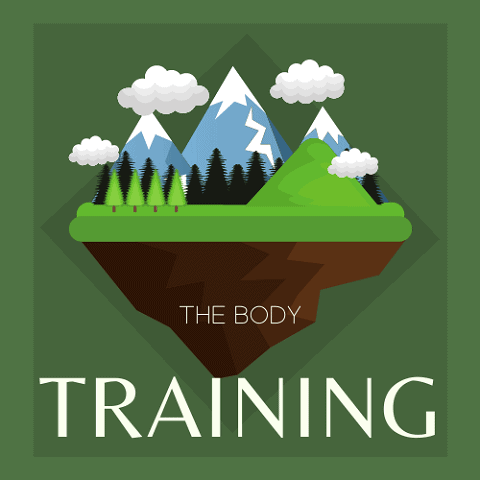Fact checked by Steven Lines, lifelong Hunter, and Outdoorsman .
.
Wild hogs and deer live in many of the same areas and have the same food sources. While both species are fun to hunt, many hunters worry that too many wild hogs in an area can negatively affect the deer. So do wild hogs scare off the deer?
Depending on the population numbers too many wild hogs will scare off the local deer. Wild hogs are not necessarily aggressive towards deer, and their presence puts pressure on the local food sources and space, which will force the deer to move into different areas to avoid them.
In many places, both wild hogs and deer will coexist without any problems at all. But where deer thrive and live alone in peace, an influx of wild hogs can drive them out of the area in no time. So how can you avoid this, and why do wild hogs have such an influence on local deer herds? Let’s dive into the effects of wild hogs on the environment, deer, and you.

In this post, we'll cover:
Do Wild Hogs Affect Deer?
Depending on who you talk to, you will get various opinions on whether or not wild hogs in an area affect deer. It depends on the populations of both species. If there are large herds of hogs in an area, they will affect the deer. If only a few groups are here or there, the deer will have a much easier time tolerating them and should not be affected.
Because deer and wild hogs have overlap in the areas they like to live in, they are forced to compete against each other for food. Things like corn, nuts, corn, wheat, greens, and grass are food for both species, leading to conflict. Wild hogs, however, are much more aggressive towards deer and multiply faster. This leads them to outclass the deer and deplete food sources. This, in turn, causes the deer to leave areas where large populations of wild hogs are prevalent.
How Do Wild Hogs Cause Problems?
Wild hogs have an incredible sense of smell that gives them a significant advantage when searching for food. Their strong snouts and tusks help them to root through leaves, litter, and soil to find every last piece of food. They can empty an entire food area faster than the deer, who mainly find food through sight. Wild hogs are also omnivores, meaning that they can eat other foods that deer cannot. This can leave the deer without the feed and forage they need for survival, especially during the long winter months.
In addition to taking over the food sources, wild hogs are prone to carrying and spreading several types of diseases. Illnesses such as brucellosis, tuberculosis, bubonic plague, pseudorabies, blue tongue, cholera, and anthrax can all be carried and spread from large populations of wild hogs. When the hogs live in the same areas as the deer, these sometimes life-threatening diseases are more likely to spread.
Lastly, wild hogs can prey upon the young deer in an area. Hogs are known for taking advantage of the fawning season and eating fawns. Because deer have no way of defending themselves, hogs can use their larger size, strong tusks, and thick bodies to snatch up unsuspecting fawns. Hogs can even use their excellent sense of smell to find newborn fawns before the mothers even notice they are gone. The deer numbers could be significantly reduced without any checks on the wild hog population.
Will Deer Eat with Pigs?
As long as the wild hogs are not being aggressive or do not show up in more significant numbers, deer will sometimes eat with wild hogs. This, of course, can change depending on how large the area is and what the food source is. For example, under the confines of a small corn feeder could lead to conflict between deer and hogs. However, in a large open field, the two species are much more likely to share an eating space.
In an area where food or water sources are more limited, these interactions are much more common. When both species have more options, there will be particular food and water sources that each one will occupy without the other.
Do Wild Hogs Mess Up Deer Hunting?
Because wild hogs displace the deer, the deer hunting in an area with too many wild hogs can become very bad. Once the deer are pushed out from the hogs, it can take a long time for them to come back. Sometimes, they will not return if the problems with the wild hogs persist. Once their scent is in an area, the deer will go out of their way to avoid any potential confrontations. If you are there with a deer tag, it may be quite a long time before you see any deer while the wild hogs are ruining the location. This is why it is crucial to avoid wild hogs while deer hunting and look for hunting spots with more deer than pigs.
Final Thoughts
Wild hogs and deer share the same habitat and food sources in many places. This often leads to hunters wondering if the hogs have a negative impact on deer hunting. Wild hogs can scare off deer if they become overpopulated or aggressive. If you can, avoid deer hunting in areas where large groups of feral hogs live to enjoy the best possible deer hunting.

Steven Lines is a hunter and outdoorsman from Safford, Arizona, USA. Since he was a child, he has been hunting and fishing and has over 20 years of outdoor experience. Steven works as a hunting guide in Arizona during his spare time and runs a Youtube channel dedicated to sharing his outdoor adventures with others.
dedicated to sharing his outdoor adventures with others.
Sources
- https://www.buckmanager.com/2009/06/25/whitetail-fawn-eaten-by-feral-hogs/

- https://www.hogmanoutdoors.com/blog/wild-hogs-wreak-havoc-deer-hunting

- https://landassociation.org/feral-hogs-and-whitetail-deer/

